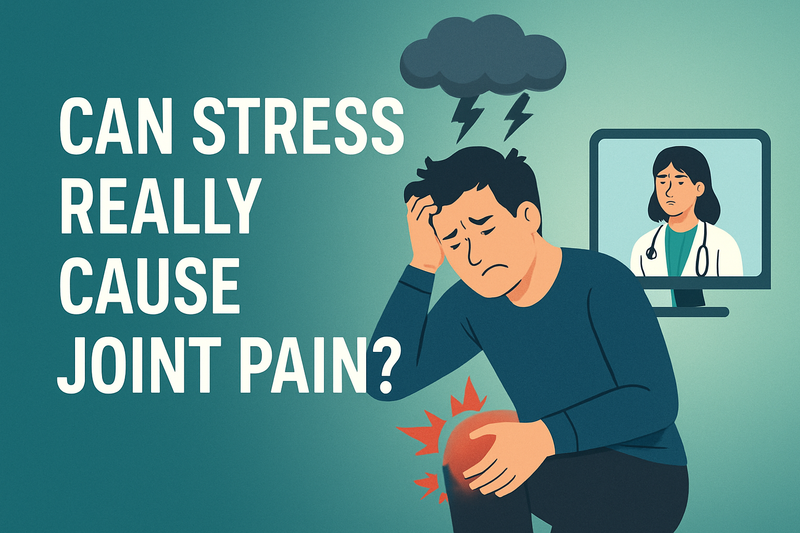Joint pain is often associated with aging, injuries, or chronic conditions like arthritis. But did you know that emotional stress might also be a hidden culprit? If you’ve ever asked yourself, Can stress cause joint pain and stiffness the answer is yes. Stress can have a significant impact on your physical health, especially your joints.
Understanding the Causes of Joint Pain
Before diving into how stress affects your joints, let’s briefly look at the common causes of joint pain:
- Arthritis (Osteoarthritis and Rheumatoid Arthritis)
- Injuries (sprains, strains, or fractures)
- Inflammation due to autoimmune conditions
- Overuse or repetitive strain
- Infections affecting joints
These are well-known causes, but many overlook how emotional stress adds to the problem making joint pain worse or even triggering it.
Can Stress Cause Joint Pain and Stiffness?
Yes, it can. Mental and emotional stress can increase muscle tension and inflammation in the body. Over time, this tension and inflammation can contribute to pain in the joints. Let’s break it down further.
How Stress Triggers Joint Pain
- Inflammatory Response: Chronic stress leads to the release of cortisol and other hormones, which can increase inflammation in the body, a major factor in joint pain.
- Muscle Tension: Stress makes muscles tighten up, which can put extra pressure on your joints and cause pain or stiffness.
- Weakened Immune Function: Long-term stress weakens the immune system, making the body more prone to inflammation-related joint issues.
- Posture & Sleep Issues: Stress often leads to poor posture and disrupted sleep both of which worsen joint discomfort.
The Connection Between Stress and Inflammatory Conditions
Conditions like Rheumatoid Arthritis, Lupus, and Fibromyalgia are already known for their inflammatory nature. Stress can be a trigger that worsens the symptoms of these diseases. While stress itself may not directly cause these diseases, it certainly contributes to the intensity of the pain.
Signs Stress May Be Causing Your Joint Pain
- Sudden stiffness in joints without physical activity
- Worsening pain during emotional stress or anxiety
- Fatigue and body aches
- Trouble sleeping due to discomfort
If these symptoms appear during stressful periods in your life, stress may be playing a larger role than you think.
Managing Stress-Related Joint Pain
Now that we’ve answered “can stress cause joint pain and stiffness , let’s focus on what you can do about it. Managing stress can greatly help in reducing joint pain and preventing flare-ups.
Tips to Reduce Stress and Joint Pain
- Practice Mindfulness: Techniques like meditation, deep breathing, or yoga can significantly reduce stress levels.
- Exercise Regularly: Low-impact workouts such as swimming, walking, or stretching ease joint stiffness and improve mood.
- Get Enough Sleep: Quality sleep helps your body recover and lowers inflammation.
- Eat Anti-inflammatory Foods: Include foods rich in omega-3s, leafy greens, turmeric, and berries in your diet.
- Seek Support: Talk to a counselor, therapist, or support group if you’re dealing with chronic stress or anxiety.
When to See a Doctor
If joint pain persists despite stress management techniques, or if you notice swelling, redness, or limited movement, consult a healthcare professional. It’s important to rule out any underlying joint disorders.
Final Thoughts
Stress doesn’t just affect your mind it affects your body too. One of the overlooked stress causes of joint pain is chronic inflammation and tension. By understanding the link between stress and joint health, you can take steps to reduce both. Listen to your body, manage your stress, and give your joints the care they deserve.




